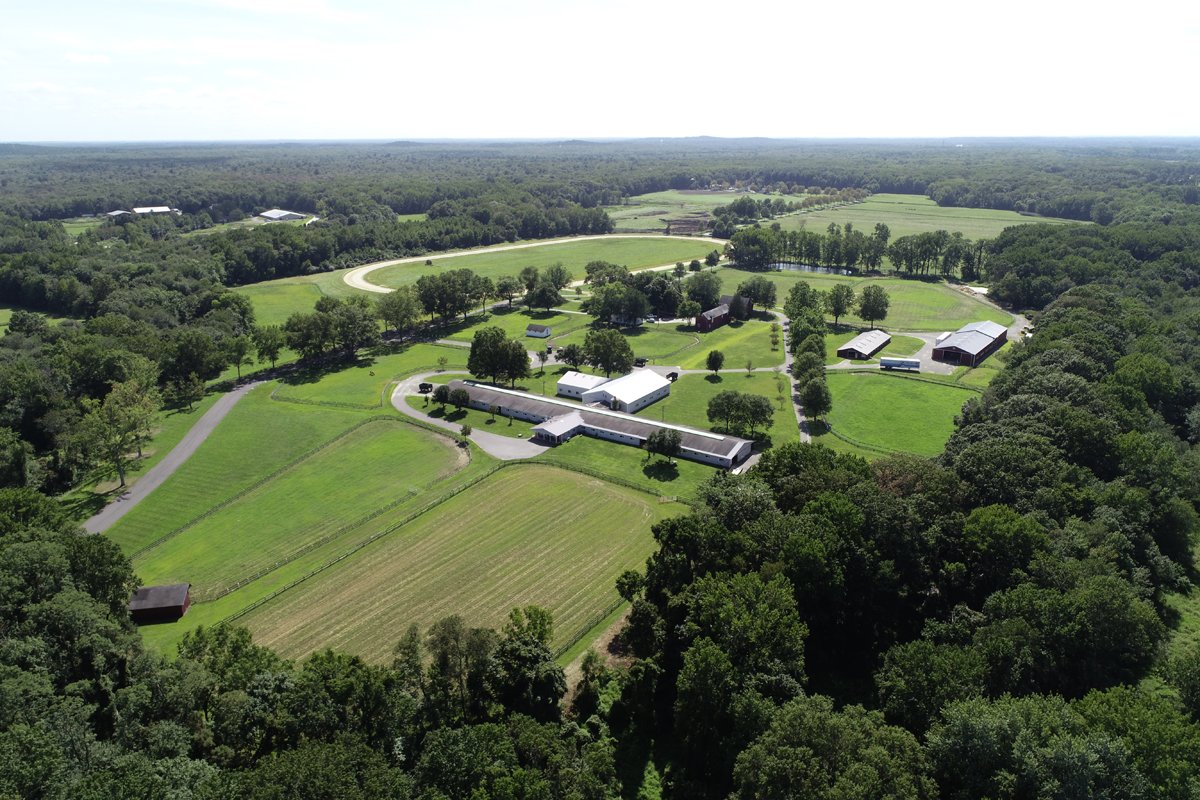For Immediate Release
Middletown, N.J. (February 8, 2024) – The US Navy, Monmouth County, and Monmouth Conservation Foundation (MCF), in partnership with two local townships, have announced the preservation of two properties bordering Naval Weapons Station (NWS) Earle through the Readiness and Environmental Protection Integration (REPI) Program run by the US Department of Defense (DOD). The two parcels – 20 acres of mostly mature hardwood forest in Howell and 235 acres comprising a thoroughbred horse breeding and training farm in Colts Neck – represent the inaugural conservation projects achieved through this partnership, with aspirations for many more to come.
20-acre parcel in Howell Township recently preserved. Photo by Fred Yahn, Eagle Drone Solutions
235-acre farm in Colts Neck Township recently preserved. Photo by Fred Yahn, Eagle Drone Solutions.
With over $3 million in federal funding awarded through the REPI program since 2018, MCF and Monmouth County have been working with the Navy and municipalities to permanently protect lands that buffer NWS Earle’s nearly 12,000 acres. Transecting the County from the Leonardo community in Middletown through Colts Neck to Howell, the naval base contains one of the largest wooded areas in Monmouth.
The REPI Program funds Congressionally authorized cost-sharing partnerships among the Military Services, private conservation groups (like MCF), and state and local governments to protect military installations and ranges against encroachment or impacts to mission and operations by outside pressures. These can include scenarios such as incompatible development, threatened and endangered species habitat, and the varying effects of climate change – especially increased temperatures, changes in precipitation volume and intensity, and flood and wildfire risk.
“We are pleased to build upon our already stellar partnerships with Monmouth County, Monmouth Conservation Foundation, and our local municipalities through the REPI program,” said Capt. Kent D. Smith, NWS Earle Commanding Officer. “Thanks to this program we are able to promote military readiness and prevent encroachment while helping our neighbors protect and preserve more of our surrounding landscapes.”
To protect against encroachment, land in the vicinity of military bases is typically protected, as in the case of these first-round projects, through conservation and/or agricultural easements purchased by the project partners and granted by willing landowners. The easement language permanently limits development potential and restricts the lands to conservation and agricultural uses. Where relevant, ecological restoration can be conducted on or obtained through the protection of land.
U.S. Navy Courtesy photo





